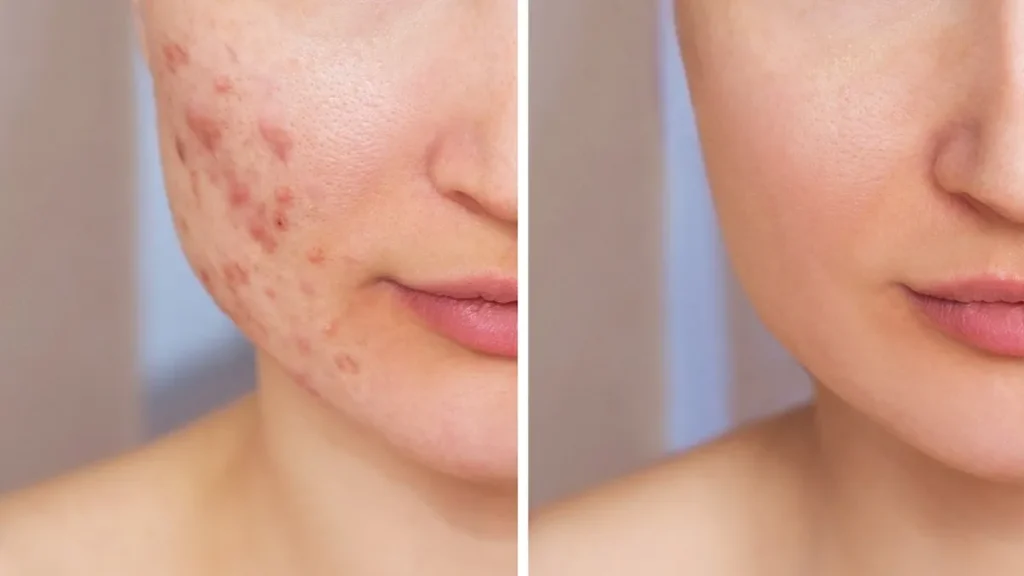
Acne is a common skin condition that can affect individuals, from teens to adults. While it is primarily influenced by genetic and hormonal factors, there is growing interest in the role of diet and lifestyle choices in managing and reducing breakouts. This article explores how dietary habits and lifestyle changes may support an acne treatment plan by potentially decreasing the frequency and severity of blemishes.
The Connection Between Diet and Acne
Research suggests diet may influence acne through its impact on hormone levels, inflammation, and skin cell turnover. Certain foods are thought to contribute to the development of acne, while others may promote healthier skin. High-glycemic foods, such as sugary snacks and white bread, can lead to blood sugar spikes, which may increase oil production and clog pores. Whole foods like fruits, vegetables, and lean proteins are associated with balanced nutrients that may benefit skin health. Paying attention to how specific food choices affect your skin can provide valuable insights.
Lifestyle Factors That May Affect Skin Health
Lifestyle choices extend beyond diet and can also influence acne development. Stress, sleep quality, and physical activity are all areas that may impact skin health. Stress has been linked to increased hormonal fluctuations, which may contribute to breakouts. Incorporating stress-management techniques, such as mindfulness or yoga, into your routine can help regulate stress levels.
Sleep quality is another element to think about. Poor sleep can trigger an inflammatory response in the body, which may exacerbate acne. Establishing consistent sleep patterns and creating a calming evening routine can promote improved skin health. Regular physical activity is thought to support circulation and help flush toxins from the body, which can indirectly benefit the skin.
Foods to Approach With Caution
Dairy products, particularly milk, can aggravate acne in certain individuals due to potential hormonal content that interacts with the body. Fast food options containing trans and saturated fats, as well as high-sodium content, may contribute to skin inflammation and clogging of pores. Highly processed snacks and sugary beverages are less nutrient-dense and can lead to blood sugar surges, which may influence acne development. Exploring healthier substitutions may positively contribute to your skin care routine.
Skin-Friendly Foods to Add to Your Diet
A nutrient-rich diet may help support skin health. The following foods are often mentioned regarding balanced options that may benefit the skin:
- Fruits and Vegetables: Packed with antioxidants and vitamins, they may combat inflammation and support skin repair.
- Omega-3 Fatty Acids: Found in salmon, flaxseeds, and walnuts, these healthy fats are associated with reduced inflammation.
- Zinc-Rich Foods: Legumes, nuts, and seeds contain zinc, a mineral linked to skin healing and oil regulation.
- Probiotic-Rich Items: Yogurt with live cultures or fermented foods such as kimchi may support gut health, which could indirectly affect the skin.
Practical Steps to Assist With Acne Treatment
Creating a lifestyle and acne treatment that supports skin health involves routine actions. Start with small, manageable steps, such as drinking plenty of water and reducing sugary treats. Focus on developing balanced meals that include skin-friendly ingredients and limit processed foods, and explore stress-relieving practices. Maintaining consistency in your skincare routine is also essential.
Achieve Healthier Skin Today
While acne cannot be reduced entirely through diet and lifestyle alone, these factors play an integral role in an overall acne treatment plan. The foods you eat and the habits you nurture can complement professional skincare advice. Making informed choices now could pave the way for clearer, balanced skin in the long term.